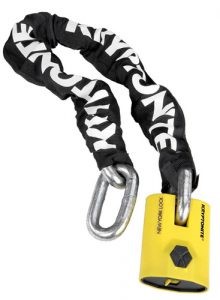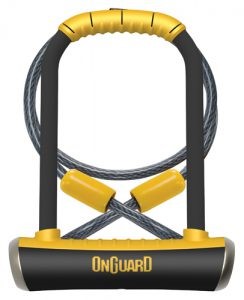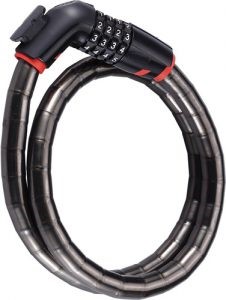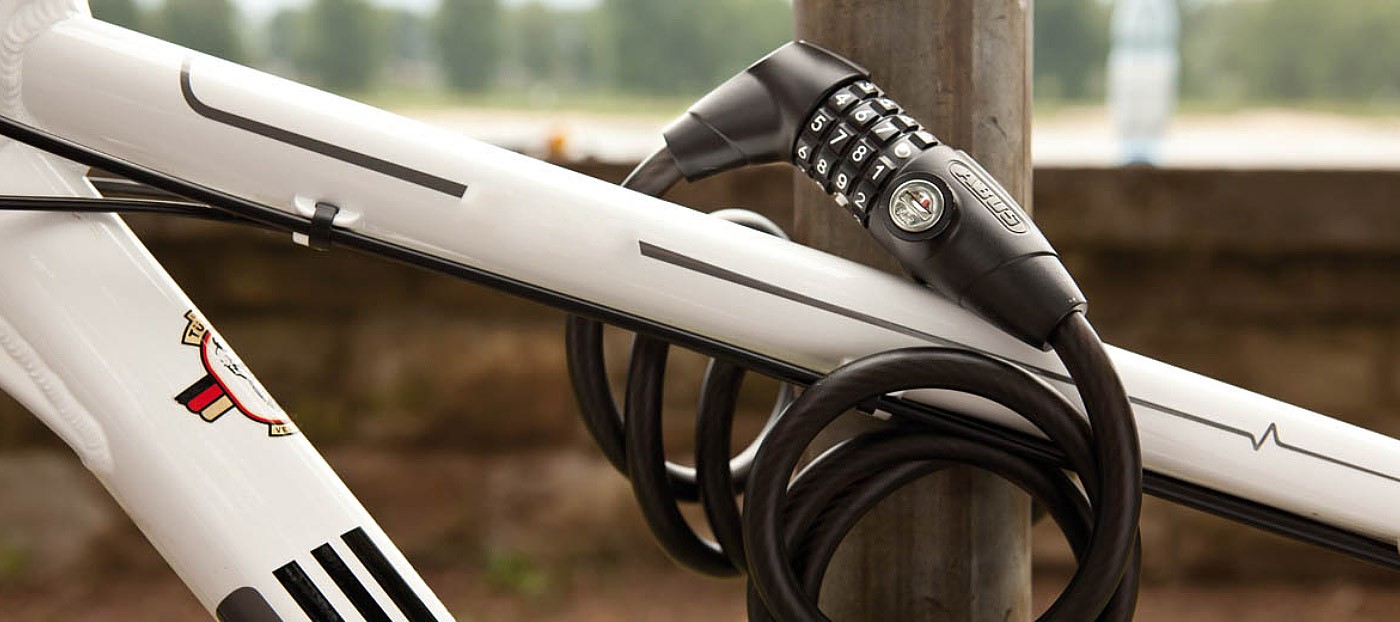There are three main types of bike lock – Cable, Chain and D-lock.
This short guide will tell you the advantages and disadvantages of each.
A good bike lock is your first, and strongest line of defence against having your bike stolen. To cater for everyone’s needs, we have a huge choice of bike locks available, but what are the pros and cons of each?
Chain locks

Big, tough and can be looped around virtually any bike. The sight alone of their heavyweight padlocks and thick links is enough to deter many would-be thieves.
| Pros | Cons |
| Extremely tough | Heavy |
| Excellent visual deterrent | Can be difficult to carry |
| Can be looped around any bike |

D-locks (U-locks)
A solid metal shackle with a removable cross bar, which you loop around your frame and a suitable metal railing or post. They’re also often accompanied with a cable to loop through your quick release wheels.
| Pros | Cons |
| Very tough | Difficult to loop through some frames |
| Great visual deterrent | |
| Lighter and easier to carry than chain | Sometimes still awkward to carry |
| Optional extra cable |
Cable locks & Combination locks

Lightweight, convenient and easy to carry, cable locks are great for low-crime areas. Combination locks have no keys, so there’s no risk of losing them
| Pros | Cons |
| Lightweight | Combo-lock is less secure than keyed |
| Convenient | Cables are less secure than solid shackles & links |
| Can be looped around all bikes | Poor visual deterrent |
| Very easy to carry |
